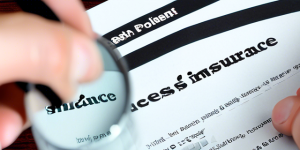
Opening the doors of your very own company unleashes thrill and terror simultaneously. Endless possibility collides with daunting risks threatening the house-of-cards stability most young ventures perch upon. One tumble leaves all lost.
Fledgling small businesses require protection across various fronts to sustain operations safely. Let’s specifically explore necessity and options around small business liability insurance shielding against major lawsuit threats jeopardizing entire livelihoods.
What exposures require coverage? How much costs enough? Which policies secure the protection needed without overspending?
Here is an in-depth overview of prioritizing and procuring affordable liability solutions allowing small business owners to focus on birthing operational dreams without lawsuit nightmares.
Defining Small Business Liability Insurance
At its core purpose, business liability insurance covers legal costs, settlements and judgements if your company gets sued for causing financial harm or bodily injuries to others.
Policies pay two key categories:
- Legal defense fees – Lawyers to represent you in court proceedings
- Judgements/settlements – Money owed if lose case or settle claims out of court
Without adequate liability limits, just a couple big lawsuits could permanently sink entrepreneurs before gaining momentum. Proactive coverage allows managing the crisis so company and personal assets remain unscathed.
Much like car insurance, even when confident you operate safely, carrying liability protection brings peace of mind handling unforeseen accidents.
Why Small Businesses Need Liability Insurance
While large corporations possess teams of lawyers and deepest pockets providing inherent lawsuit protection, small businesses and side hustlers enjoy no such buffer. This amplifies the need to lock down coverage fitting your risk profile.
A single slip, flaw, mistake or controversy within daily operations exposes tiny entities to the same gutting legal claims targeting mega corporations. Don’t be overconfident – it happens shockingly fast.
Let’s examine core liability scenarios threatening to upend underinsured small ventures.
Customer Injury Lawsuits
If a client gets physically injured engaging your business services, lack of insurance leaves you financially crippled. Something as simple as an older customer falling inside your retail store could crush dreams overnight with six figure legal debts.
Even if not directly responsible for incidents, “ambulance chasing” lawyers regularly pursue small operators knowing insurance lacking means easy deep pockets targeting via aggressive legal tactics. Don’t think small means off the radar.
Employee Injury & Discrimination Lawsuits
Whether working in offices, warehouses or out in field sites, employees risk daily injury exposures within environments you control. Failure providing safe conditions greatly heightens legal risk potential.
Even with perfect safety protocols, sheer employee headcount volume in bigger companies allows higher probability of an accident claim emerging. Prepare for claims.
Discrimination, harassment and wrongful termination lawsuits also flood small businesses lacking HR firewalls that large corporations build in. Know employment laws and handle staff oversight very carefully at early stages before insurance safety nets harden.
Customer Financial Loss Lawsuits
If customers claim your products or services failed causing them direct financial damages, lawsuits demanding compensation quickly follow.
Maybe a software glitch in your SaaS platform erased crucial data. Perhaps manufactured goods explode or break dangerously causing property damage. Services promised but never delivered result in lawsuits seeking refunds plus heavy damages too.
The range of outcomes sparking financial loss legal action remains endless for customers engaging businesses daily. Don’t risk assumptions here – verify protection.
Contract Breach & Intellectual Property Lawsuits
If suppliers, partners and collaborators feel you violate terms of agreements entered or steal ideas outright, multi-million dollar contract or copyright infringement cases develop rapidly.
Navigating complex business contracts and imprecise intellectual property protections often requires legal prowess most small entrepreneurs lack at early stages. Never just “wing it” and see what happens with informal partnerships or sales contracts crossing into unknown legal territory.
Unfortunately revenue realities incentivize some unethical businesses copying successful ideas blatantly while trying schemes avoiding consequences. Build ethics into business models from day one and insure properly against misjudgments.
The overarching reality:
No business proves too small or low profile to stay hidden from crippling lawsuits in today’s aggressively litigious climate. Too often entrepreneurs realize this once knee deep battling legal nightmares uninsured after incidents strike.
Secure detailed liability solutions upfront matching your niche landscape and operational footprint. Then focus innovation fully on customers without legal landmine worries sneaking up.
Types of Small Business Liability Insurance

Multiple specialized liability insurance solutions help address various risk angles for companies both small and large. But the two most vital policies securing core protections for typical main street small business needs include:
General Liability Insurance
The broadest small business liability solution protecting against claims of bodily injury or property damage caused because of your operations, products or services.
General liability insurance covers legal judgements and lawyers fees if customers ever sue for incidents like:
- Slip & Fall Injuries on Business Premises
- Customer Choking on Object in Packaged Food Products
- Software Bugs Deleting Customer Data and Derailing Operations
- Shelving Collapsing and Destroying Customer Merchandise
- Defective Components Catching Fire Damaging Buyer Factories
Policy limits usually range from $500k to as high as $3 million in coverage or even $10 million for very large enterprises. But most small businesses only need ~$1 million for adequate protection against the majority of claims.
Besides dollar limits capping payouts, general liability policies also specify deductibles requiring you pay an amount like $1000-$5000 out of pocket before insurance kicks in on an approved claim. This controls insuring only meaningful high cost cases mostly out of your control.
Compared to niche policies, general liability insurance delivers the most flexible and affordable starting point securing peace of mind across random accidents negatively impacting customers. It works as the broadest baseline shield.
Professional Liability Insurance
Also frequently called errors & omissions (E&O) insurance, professional liability insurance covers a special form of catastrophe – financial damages from failed professional services you owe customers per contracts or agreements.
Beyond bodily harm or property damage, E&O protection helps fund expensive claims if say an architect’s inadequate building plans or a lawyer’s faulty case advice causes clients heavy financial loss down the line.
These policies respond when negligence, errors or intentional misdeeds by you or employees create scenarios where client investments get wasted or business operations unravel absent promised deliverables.
While general liability covers human health and physical assets, professional liability shields temporary loss events stalling productivity for customers relying on expert human services. These can cripple operations equally badly if seven figure court cases seek restitution.
Most professional services firms like marketing agencies, consultants, architects, investment advisors and healthcare practitioners need this expanded protection given inherent hazards within intangible work outputs.
For other businesses, evaluation requires weighing customer concentration risk and the extent financial damages get amplified if your products/services fail or require recall repairs down the line.
Either way, lacking adequate professional liabilityinsurance exposes most small businesses today given proliferating lawsuits seeking financial protection from assumed provider “promises.” Don’t learn this lesson once caught bankrupt in seven figure legal sinkholes!
How Much Small Business Liability Insurance Is Needed?

Pinpointing adequate insurance coverage levels matching operational risk requires assessing a few key factors:
1) Legal Liabilities Imposed by Law
Certain industries face automatic legal assumptions by regulators and licensing boards defining minimum liability insurance requirements to even operate companies legally.
Healthcare, financial advisors, insurance brokers, CPAs/accountants, lawyers and other licensed practitioners cannot practice without stating minimum policy limits to cover common catastrophes for that profession. This instantly sets baseline coverage caps needing procurement before opening doors.
2) Contractual Liabilities with Big Clients
Large corporate clients often require partners carry designated liability limits like $2 million minimum to qualify for critical channels and revenue opportunities. This forces smaller players to lock up expanded insurance policies early showcasing ability to take on such Fortune 500 customers.
Don’t forgo big league enterprise contracts only because hesitated insuring properly to cross required risk barriers to entry. Leave no coverage stone unturned attaining key anchors affirming credibility.
3) Lawsuit Likelihood & Historical Precedent
Some industries like construction see frequent enough worker injuries or defective housing materials triggering claims over decades that million dollar insurance limits become standard for even small operators. High risk market landscapes dictate higher premium costs get treated as “standard business expenses” which then get budgeted permanently across projects.
Other newer fields like mobile apps or AI products lack historical lawsuit precedent so buyers initially skimp on insurance expenses given lower visible risk precedent. But smart leaders still invest in liability safety nets supporting aggressive experimental growth possible.
4) Personal Asset & Company Valuation Level Risks
A solo freelancer living month-to-month on projects can likely get by with $500k liability buffers while a thriving small firm holding valuable real estate assets and richer company valuation requires $5M+ limits defending total wealth built over time.
External lawyers look for deep pockets picking lawsuit targets – don’t preserve years of assets only to expose them left naked if ever dragged unfairly into legal spotlights.
Where To Purchase Small Business Liability Insurance
Multiple insurance source options provide small business owners flexibility finding liability solutions:
Insurance Agents & Brokers help solicit quotes from top national brands liked The Hartford, Nationwide, State Farm, Travelers, Chubb, Liberty Mutual, Progressive, and other trust hounds. Local agents assist selecting adequate general liability insurance and any supplemental coverage like professional liability matching your niche needs.
Online Insurance Marketplaces like CoverWallet, Next, Bold Penguin, Simply Business or Hiscox allow instant customized quoting across top insurers nationally to compare and buy tailored liability packages end-to-end digitally saving time. Deeper underwriting data powers tailored options.
Industry/vertical specialized Wholesale Brokers connect certain small business segments like contractors, consultants and healthcare specialists with specialized insurers catering to niche risk scenarios. This avoids poor fit policies from national brands lacking experience protecting unique emerging industries. Ask trade groups for broker references fitting specialty.
Leverage a blended strategy receiving generalized quotes from standard carriers to benchmark pricing ranges, but then pursue specialist brokers knowing granular realities that customized micro-vertical or emerging growth situations attract.
Never presume one-size-fits all insurance packages work sufficiently protecting unique entrepreneurial endeavors not yet normalized into mainstream. Find experts etching policies decoding differences previously not needing explicit coverage based on historical legal rulings.
5 Key Factors That Influence Liability Insurance Costs
Like any insurance, calculating adequate small business liability premiums combines assessing both risk probability and potential loss impact severity if incidents struck. More risk and bigger disasters equal pricier insurance.
Several core factors determine risk ratings and policy prices specifically for small business liability solutions:
1) Industry Category & Operations Conducted
Architects pay higher premiums than social media consultants given more frequent million dollar lawsuit histories from failed project impacts. Storage locker rental providers enjoy minimal risk so pay less than amusement parks endlessly navigating injury exposures from rides, games and food.
Services/product characteristics, safety vulnerabilities and consumer sentiment greatly sway base rates even amongst general small businesses before accounting for company-specific protocol risk factors.
2) Revenue Size & Total Employees
Higher earning power hints larger target with more assets to protect while benefiting legal teams pursuing claims. Ten person companies assume greater probability of an accident lawsuit over a solo home based freelancer.
Insurers charge higher base premiums as revenue and headcount rise given creeping liability disaster odds hitting a claim deductible necessarily requiring an insurance response. Volume drives risk assumptions pricing core coverage.
3) Location Territories & Legal Standards
Like real estate, policy costs fluctuate based on geography and regional density. Urban work sites expect pricier insurance reflecting more people exposures than rural counterparts for similar operations. State legal nuances further move numbers.
California businesses renowned for aggressively litigious legal culture around consumer protections pay greater insurance premiums than Midwest counterparts facing smaller lawsuit volume historically within otherwise similar sectors.
4) Safety & Compliance Protocols
Insurers incentivize small business owners evidencing safety investments preventing future incidents and lawsuits with discounts on insurance pricing. Documented compliance helping avoid violations of regulatory laws also keep premiums lower reflecting conscientious duty of care used avoiding legal complaints.
Prominently advertise adhesion to codes customers value to earn goodwill buffer during conflicts too. Every little bit bolstering consumer sentiment matters avoiding assumption of negligence.
5) Insurance History & Annual Claims
Consistent insurance protection over many years without filing multiple claims keeps premiums smaller thanks to long term client rebates and contractual guarantees from carriers. Filing even one major claim can trigger insurers re-evaluating riskiness possibly elevating rates at renewal.
In essence, keeping usage of liability insurance itself minimal proves important maintaining affordable long term protection. This motivates greatly striving to master safe operating practices day-to-day wherever possible throughout teams because just one major incident can undeservedly spike costs overnight.
Tips For Lowering Small Business Liability Insurance Expenses

Beyond the five key pricing factors above partially outside entrepreneur control, smart small businesses take additional steps ensuring tight control of premium budget overheads given the essential protection insurance delivers.
Top small business liability insurance cost optimization tactics include:
- Seek insurance specialist guidance on claiming legitimate “professional” designation even without formal credentials to access lower risk tier status for niche industries
- Bundle general business insurance together (general liability + property insurance + other policies) with one carrier for multi-policy discounts
- Install advanced security systems preventing fraud/theft reducing likelihood of costly legal investigations requiring liability insurance defense
- Formally incorporate business structure for added lawsuit protections beyond sole proprietors who remain personally liable
- Increase deductible amounts to higher levels like $10k requiring greater individual loss risk appetite before insurance covers claims to lower premiums
- Proactively advertise safety certification adherence and protocol investments to limit legal targeting
- Implement contractual risk transfer whenever possible passing liability to separate entities like limiting product defect exposure through suppliers and distributors contractually
- Qualify for any niche industry trade group affiliations granting insurance discounts
- Consider group association plans if joining local chambers of commerce or trade coalitions provides access to cheaper insurance rates
The more small business leaders learn about legal exposures from specialist peers while proactively mastering risk management disciplines internally, the less dependent shelling out steep premiums remains satisfying insurance mandates. Take control tactically reducing the odds and limiting impact potential needing external coverage help!
How Much is Small Business Liability Insurance Typically?
Typical small business general liability insurance ranges drastically based on all the pricing factors outlined already. Some examples for common main street small business types:
- Home contractor general liability – $1500 per year
- Professional consultant services general liability – $600 per year
- Online ecommerce retailer general liability – $300 per year
- Coverage minimums around $1 million value
Examples with added professional liability range higher:
- Law Firm E&O – $2500 per year
- Accounting Firm E&O – $1500 per year
- IT Consultant Tech E&O – $900 per year
Of course individual business risk profiles cause pricing to fluctuate further. But used as general benchmark ballpark figures, small ventures protect themselves against crippling legal disasters for reasonable annual costs not exceeding typical monthly commercial real estate squatting bills!
The hardest step proves moving beyond “that’s too expensive” or “lawsuits won’t happen to me” mentalities blocking urgently critical action. $100k legal bills hit MUCH harder down the road!
Conclusion
The thrill seeking heart of entrepreneurs dives headfirst pursuing commercial innovations changing the world. But the reasoned brain must force patience first building calculated legal infrastructure enabling sustained growth on top of innovations worth protecting.
Small business liability insurance forms foundational protection no empire builder can neglect to acquire early on. The safety net defends work products against real world risks allowing small brands to punch up against heavyweights fearlessly. Leave no assets vulnerable – arm yourself fully insuring the American dream sprinting out the gates toward destiny!
FAQs – Small Business Liability Insurance
What qualifies as a small business for insurance rates?
For liability insurance qualification, small businesses typically classify as any independent company with less than 100 employees or $10 million or less in annual revenues. Larger figures enter mid-sized corporate territory with very different risk assumptions.
What industries absolutely need liability insurance?
High risk injury sectors like construction, healthcare, fitness, alcohol vendors, engineering firms, tech companies and most professional services where mistakes carry grave consequences absolutely need liability solutions protecting personal assets. Else financial ruin follows quickly after just one legitimate lawsuit.
What’s more expensive for small business: general vs professional liability insurance?
For most main street small companies, purchasing a quality general liability solution runs cheaper than adding extra niche professional liability products which defend specialized services failures. General liability pricing starts around $400 per year on average while tailored professional lines like IT E&O climb closer to $1000+ for micro-businesses.
Can I retroactively buy business liability insurance after getting sued already?
No – similar to health insurance, existing legal cases known already exclude eligibility for coverage under liability policies which only defend future incidents during active policy terms. Some fraud blackout periods waiting to apply also exist avoiding cases anticipating imminent lawsuits. Buy proactively before disaster strikes!
What is the absolute cheapest business liability insurance option?
Technically small business owners can attach super basic liability coverage endorsements onto existing home or rental insurance plans which provide some superior protection over remaining totally uninsured. However, these don’t deliver nearly enough amplitude defending commercial lawsuits adequately in most situations. Invest in proper standalone insurance.
]]>